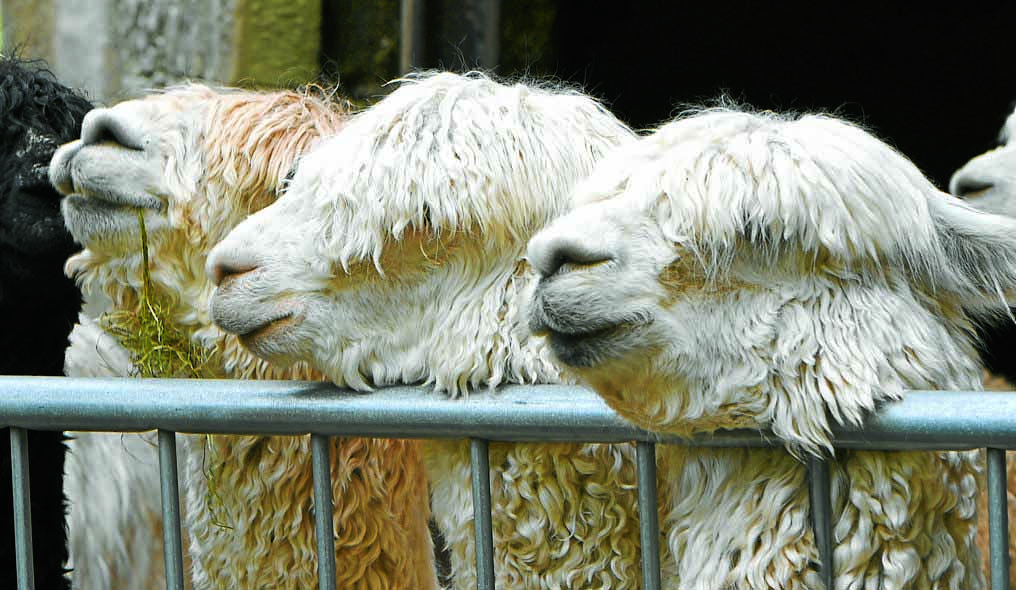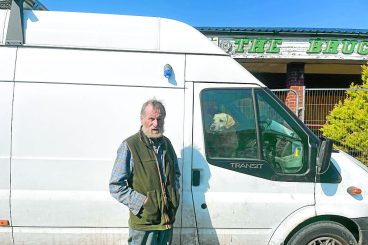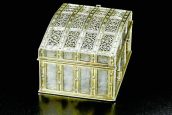MOST of the fields in Annandale and Eskdale have cows or sheep grazing in them.
So anyone driving in the Canonbie area could be forgiven for doing a double take at seeing alpacas roaming about.
They belong to family-owned business Hebbs Alpacas, located at Glencartholm Farm near the village.
Originally a dairy farm, the purpose of the land was changed when Bev Hebbs moved there in September 2022.
Bev and her family began caring for Alpacas 13 years ago in 2010. While they originally only had two, their herd has expanded over the years and the farm currently has 70 in total.
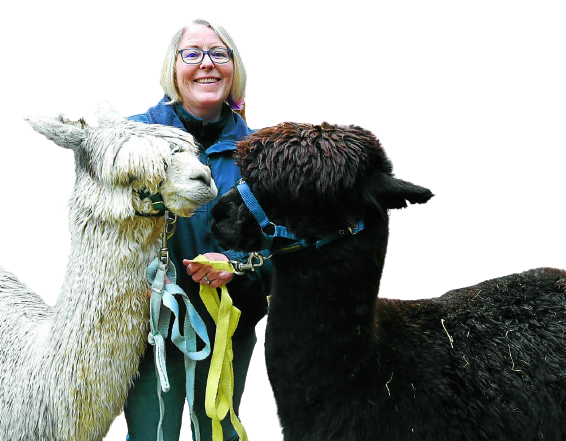
Bev said: “Alpacas are fantastic animals to raise. They have a lot of personality.
“They’re extremely easy to raise and look after compared to other animals like sheep. Alongside this, they practice good hygiene and have designated bathroom areas, they have a gestation period of around 11 and a half months, and they always give birth to their crias during the day.
“I’ve heard a saying that all you need for an alpaca birth is a stool and some rope… And the rope is for the farmer to stop them from intervening!
“Alpaca are also great at warding off predators. In my thirteen years of looking after then, I’ve never had a fox kill any of my other animals.”
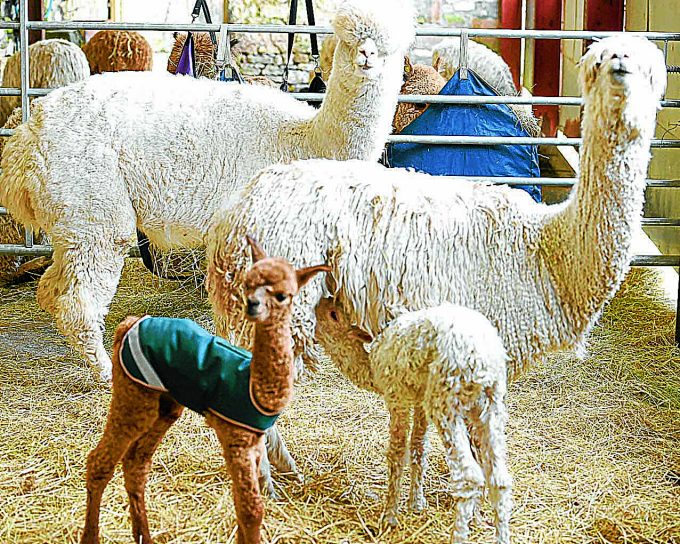
Origins and history of the alpaca
The alpaca is a species of South American camelid mammal that originated in Peru. It is similar to, and often confused with, the llama.
However, alpacas are often noticeably smaller than llamas, as well as having a different tail position to llamas.
Alpacas are known for their wool, which is sheared once a year and sold by Hebbs Alpacas in a variety of different products ranging from socks and hats to plushies and bird feeders.
The wool of these animals is extremely soft, and many will find their hands sinking into the fleece of an Alpaca as when they touch one. But unlike sheep wool, which is coated with a slimy substance called lanolin, Alpaca wool is dry.
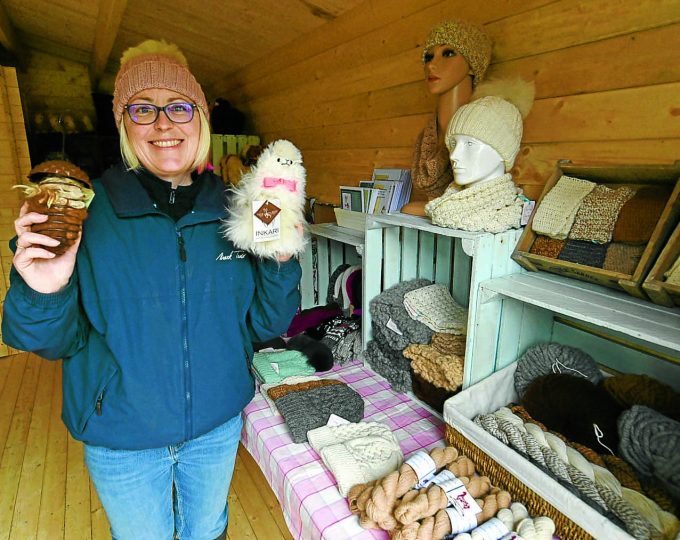
Bev continued: “Socks made from Alpaca fleece are softer than sheep’s wool, keep your feet cool on hot days and warm on cold days.
“It’s because alpaca fibers are completely hollow, which allows them to regulate temperatures and wick moisture off of their body far easier than Sheep can.”
In order to make the fibres as soft as possible, Bev selectively breeds her alpacas to focus on having soft fleeces.
Mystifying genetics of the alpaca
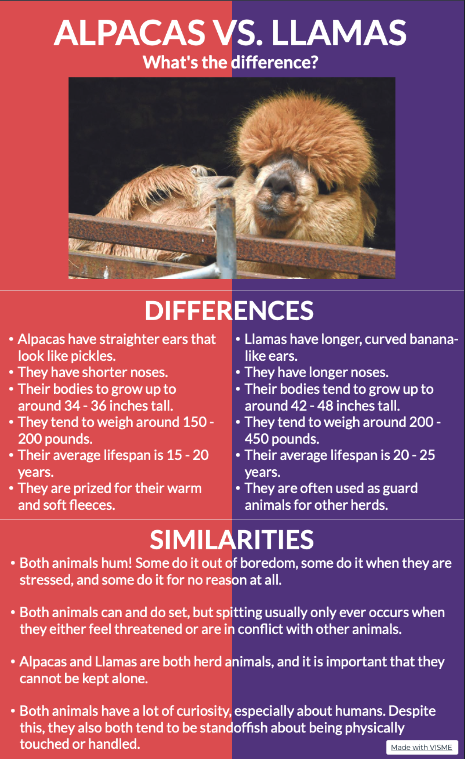
There are two different breeds of alpaca that they keep, being hucuya and suri. While 90 per cent of all alpaca are hucuya, the majority of animals on Bev’s farm are suri.
Bev said: “Alpaca genetics is a field that has yet to be fully explored, but is very interesting to me.
“These animals can come in every natural colour, from black to white to every kind of brown.
“But even if you breed a white alpaca with a black one, the cria could be brown.
“In Peru, the quality of alpaca fleece is far lower because the Peruvian farmers weren’t as educated in breeding them. Many of those farmers are being educated by breeders from other countries to improve the quality on the market.”
https://twitter.com/BenMurrayyy/status/1658441356627308544
Alpacas were only recently exported from Peru to other countries such as the UK and China 30 years ago. Peru itself still has the largest population of the animal with over 80 per cent of Alpacas living there, with Bolivia in second with less than 10 per cent of the total.
Bev spoke more about their initial exportation, stating: “Alpacas have been given a less-than-stellar reputation and grouped with their llama relatives for being aggressive and spitting on people.
“Alpacas do spit, but their spitting is used more for self-defence and as warnings to other herd members. Such as if another alpaca ventures too close to one’s favourite spot.
“When they were first exported to the UK and put into zoos, they were alone. Alpaca are herd animals.
“Their reputation of spitting and charging at people was just because they were frightened and alone.”
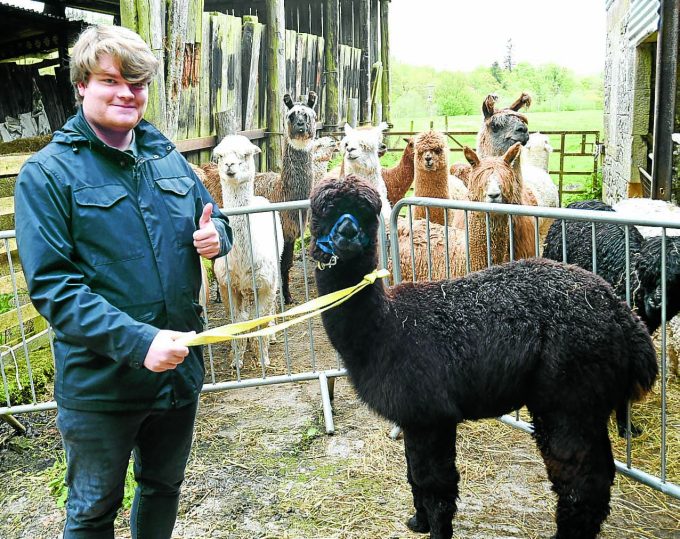
Alpaca events
Hebbs Alpacas also host Alpaca experiences for those interested in learning more about the animal.
These events are held on weekends and must be booked in advance. Alongside this, they are split into two different activities.
Alpaca meet and greets allow visitors into a small pen to meet several of the animals while Bev educates them on their history and care. These last around 45 minutes.
Alongside this, there are also walks that groups can go on where they can walk alongside pairs of alpaca through the countryside for around an hour and 15 minutes.
Bev said: “I love telling people about Alpacas. Unfortunately, I don’t think I could talk so frequently for the entire week.
“Because of that, we only hold the events for small groups on the weekends.
“Its nice to chat to people and educate them, and it keeps us happy when we do it.”
For more information about Hebbs Alpacas, their products and services, visit their website.





